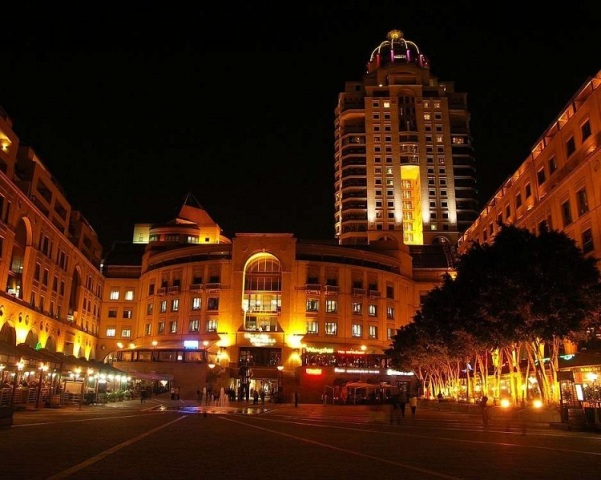Johannesburg is the largest as well as the most populous city in South Africa. Check out some interesting & fun facts about Johannesburg.
Facts About Johannesburg
One of the largest cities in the continent and also a popular tourist destination, Johannesburg is one of the top 50 metropolitan areas in the world. Johannesburg is the largest city in South Africa and is commonly known as the lightning capital of the world. It serves as the economic and financial hub of the country, contributing around 16 percent of its gross domestic products. Though mining is not practiced within the bounds of the city, headquarters of most of the mining companies are located here. Steel and cement plants acquire major position amongst all the other heavy industries in Johannesburg. The city also serves as the gateway to South Africa, as it acts as a transit point for connecting to various other cities in the country. It is truly global in nature and is classified as a Gamma World City. For some more interesting and fun facts about Johannesburg, read on.

Image: By NJR ZA (Own work) [CC-BY-SA-3.0 (http://creativecommons.org/licenses/by-sa/3.0) or GFDL (http://www.gnu.org/copyleft/fdl.html)], via Wikimedia Commons
Fast Facts
Country: South Africa
Continent: Africa
Established In: 1886
Established By: Voortrekkers
Population: 1,009,035 (2011)
Area: 508.69 km2
Interesting & Fun Facts About Johannesburg
- Johannesburg is the most populous city in South Africa.
- Johannesburg is an important center for large-scale gold and diamond trade, as it’s located on the mineral-rich Witwatersrand range of hills.
- Johannesburg is the provincial capital of Gauteng, which is the wealthiest province in the country.
- Johannesburg is one of the 40 largest metropolitan areas of the world.
- It is Africa’s second largest global city, after Cairo.
- Johannesburg has been rebuilt four times in the span of one century. First, it was a tented camp, then a town of tin shanties, then of four-storey Edwardian brick buildings and finally, a city of modern skyscrapers.
- The largest and busiest airport of Africa - O.R. Tambo International Airport is also located in Johannesburg.
- The Constitutional Court, the highest court of South Africa, is located in Johannesburg.
- Gold was discovered in Johannesburg in the 1880s, after which the gold rush was triggered.
- 40% of the world’s human ancestor fossils were discovered in Johannesburg.
- Johannesburg houses the tallest office block as well as tallest tower in Africa namely, the Carlton Centre (50 stories) and the Hillbrow Tower (90 stories), respectively.
- Forty percent of the world's gold is found in the greater Johannesburg region. In effect, Johannesburg is also referred as ‘Egoli’, meaning the ‘Place of Gold’.
- The city of Johannesburg receives an average of twelve hours of sunlight in a day.
- Around 1569 hectares of land is covered by nature reserves in the city of Johannesburg.
- There are 12 river systems that run through the city of Johannesburg.
- Forty percent of all the world's human ancestor fossils have been discovered in and around Johannesburg.
- Johannesburg is dotted with 150 heritage sites, half of which are national monuments.
- Johannesburg is laced with over 10 million trees, and therefore is also known as the largest man made forest in the world.
- The Sterkfontein fossil site is the world's richest hominid site. It produced the first adult Australopithecus africanus and the first near-complete skeleton of an early Australopithecine.
- Even though Johannesburg was founded in the 19th century, it is still considered one of the youngest cities around the globe.
- The largest acute hospital, the Chris Hani-Baragwanath Hospital, that serves over 3.5 million people, is located in this beautiful city.
- Johannesburg’s zoo in Parktown, is the only zoo in Africa that is home to two polar bears—Wang and Geebee.
- The popular Kwaito music traces its origins in Johannesburg.
- Johannesburg is also known as ‘Joburg’.
- Johannesburg is the world’s largest city that has not been built on a coastline or beside a lake or river.
- Johannesburg’s traffic is legendary all over the world. Even though the city is dotted with a dozen highways, it can get quite difficult for commuters to travel from one place to another even if the destination is only a block away! The average commuting time in Johannesburg from one place to another is 45 minutes.
See also
More from iloveindia.com
- Home Remedies | Ayurveda | Vastu | Yoga | Feng Shui | Tattoos | Fitness | Garden | Nutrition | Parenting | Bikes | Cars | Baby Care | Indian Weddings | Festivals | Party ideas | Horoscope 2015 | Pets | Finance | Figures of Speech | Hotels in India : Delhi | Hyderabad | Chennai | Mumbai | Kolkata | Bangalore | Ahmedabad | Jaipur
- Contact Us Careers Disclaimer Privacy Policy Advertise With Us Lifestyle Sitemap Copyright iloveindia.com. All Rights Reserved.







